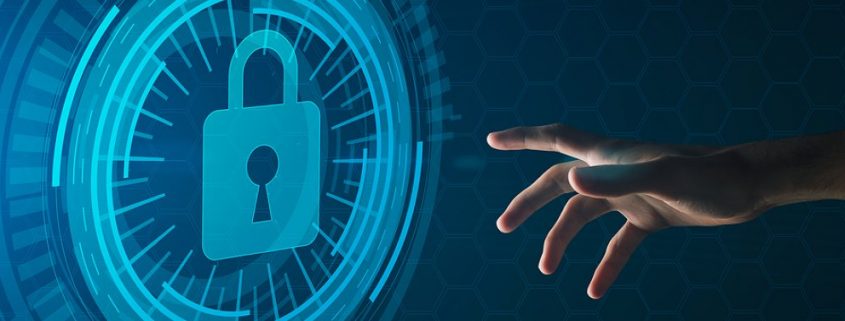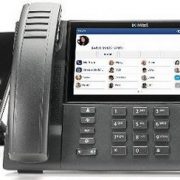Safeguard Your Customers and Data with Advanced Unified Communications Security
The bad guys will not stop… Cybersecurity challenges are never-ending.
This is a big concern in virtually every industry, especially those where most interactions have gone digital to meet customer preferences for self-serve and engagement through the channels they prefer – at the time they want.
While this is convenient for customers, it has created significant operational and cybersecurity challenges for contact centers. To provide excellent customer service experiences, contact centers must authenticate a customer’s identity, address questions and concerns, and process transactions quickly and efficiently.
Throughout the process, customers must feel like every interaction is secure, and companies must ensure they protect customer privacy during and after a call. With the proper unified communications (UC) tools, organizations can streamline and secure all contact center conversations to meet omnichannel service expectations before, during, and after a customer connects with a live agent.
Voice Authentication personalizes Service and Reduces Fraud
Large and small organizations are implementing digital transformation strategies designed to streamline contact center interactions. Since only some customers need the help of a contact center agent, these efforts are focused on automating processes with self-serve channels that lower costs. For example, chat and voice bots are being introduced to act as virtual agents, deliver services, promote new products, and provide personalized customer experiences — all without connecting the customer to an agent.
But regardless of which digital self-serve path is available, chances are that a caller will eventually want to go beyond simple questions to discuss a specific account. At that point, a live connection with an agent will be needed. When that happens, the agent must be assured of the caller’s identity before dealing with personal account information. While security questions were enough to protect the customer and the business in the past, today’s cybersecurity landscape is a lot more complicated. A disembodied voice on the other end of the line may not be who it claims to be.
Speech recognition systems can be integrated with existing UC platforms to add a layer of cybersecurity protection. These systems can identify the caller’s intent, authenticate the customer using voice biometrics, and then segment and route the call to the best agent to handle the request. With these digital workflows, companies can streamline the call management process and enable a more personalized interaction because the agent will spend less time authenticating the person on the other end of the call and more time dealing with the customer’s specific questions.
Integrated Voice Response and Recording Capabilities enable Advanced Cyber Protection
TCI offers contact center solutions that include an embedded, self-service Interactive Voice Response (IVR) system with an optional speech recognition feature that enables authentication before an agent is connected. With our customized UC platforms, businesses get a complete communications, collaboration, and customer experience solution designed to maintain the security of contact center interactions for any organization.
Organizations that want additional cyber protection for contact center calls can opt for Interaction Recording (IR) to record all calls and then search for, play, and interrogate call recordings for security and privacy regulation compliance. Advanced speech analytics capabilities built into the system enable companies to analyze recordings for potential fraud, categorize calls as “high risk,” and then suggest countermeasures that can be taken to avoid losses.
TCI’s advanced solutions can be applied to support both centralized contact center operations and decentralized organizations with multiple branch offices that manage customer calls.
Privacy Features that ensure Regulatory Compliance
Of course, in addition to maintaining a high level of cyber protection for all contact center interactions, companies must also comply with data protection regulations designed to protect the privacy of customer data. The changing and complex regulations surrounding data privacy and security compliance have created another challenge for both centralized and decentralized operations.
TCI offers solutions built to protect personal data captured during a call by contact center agents either on an agent’s screen or a voice recording. For example, information collected by workflows can be masked to protect personal data as it is being collected. To control access to stored data, information required by the system to perform certain functions (name, phone number, email address, and voice and multimedia transcripts) can be automatically deleted when no longer required to provide service. Plus, multi-level security privileges can be applied to limit access to all data based on user profiles.
Enable Great Customer Service while optimizing Cybersecurity
Ultimately, the cybersecurity protection that businesses build into their contact center processes should be seamless and efficient. Self-serve options should authenticate a customer’s identity before connecting to a live agent. Agents should be able to address customer questions and manage transactions quickly and efficiently without being bogged down by cybersecurity protocols. UC tools enable enterprises to achieve this level of protection without compromising omnichannel service objectives.
Learn how TCI can help your contact center thrive in the digital age, improve your bottom line, and adhere to security, compliance, and fraud mitigation requirements.
Call us today at (703) 321-3030 or GetHelp@tcicomm.com.













Leave a Reply
Want to join the discussion?Feel free to contribute!